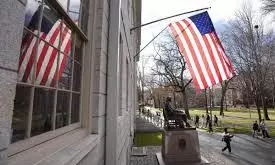
Foreign tech workers urged to return to the US before Trump takes office
text_fieldsImmigration attorneys in the United States are advising foreign tech workers on visas to return to the country before Donald Trump is inaugurated as president on January 20, 2025.
The warning comes amid expectations that the Trump administration will implement executive orders restricting access to work visas, particularly those relied on by the tech industry.
According to reports, the H-1B visa, which allows companies to employ skilled immigrants for specialized roles, could be affected. Critics argue that the visa is often used to hire foreign workers at lower wages, while supporters see it as vital for filling high-skill positions.
Texas-based immigration lawyer Jason Finkelman warned of impending challenges, stating, “A storm is coming, and this time, we know exactly what it’s going to bring.” Finkelman highlighted the possibility of travel bans targeting certain countries, reminiscent of Trump’s earlier immigration restrictions. He noted that while such measures may face legal challenges, they could disrupt U.S. employers’ ability to hire and retain foreign talent.
Similarly, a California-based attorney urged clients traveling overseas to return promptly, fearing a renewed travel ban. Speculation also surrounds whether the restrictions could extend to countries like China, further complicating visa processes for tech workers.
During Trump’s previous term, applications for H-1B visas faced heightened scrutiny, with a notable increase in denial rates. His administration’s "Buy American and Hire American" executive order sought to prioritize high-paid, highly skilled applicants and protect American workers.
With tech workers now waiting to see the specifics of Trump’s policies, concerns are growing over the potential impact on their ability to live and work in the U.S. long-term.
Trump’s stance on immigration also includes plans to reinstate a travel ban targeting individuals from Muslim-majority countries. These anticipated measures could further strain the U.S. tech industry’s reliance on global talent while intensifying debates on immigration policy.























